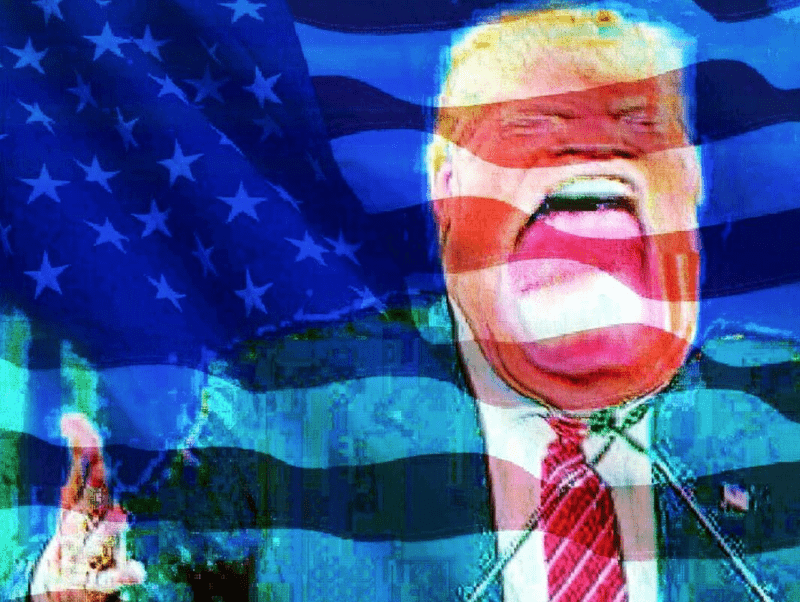Trump’s Opinions
Trump has expressed many different opinions on cannabis during his time in the public spotlight, so what his marijuana policies will be as president are slightly unknown. In the 1990’s, Trump expressed that he believed the war on dugs was a failure and that, “You have to legalize drugs to win that war.” He expressed the importance of legalization in order to take profits away from drug cartels and proposed country-wide marijuana legalization.
More recently on the campaign trail, however, he has expressed more trepidation about full scale marijuana legalization. Though he does recognize states’ abilities to individually legalize marijuana, he also has articulated that he sees some problems within states like Colorado, where marijuana is recreationally legal. The one aspect of marijuana policy that Trump has held steady on is his support of medical marijuana. Trump believes in full legalization of medical marijuana and recognizes its benefits as an alternative to traditional pharmaceuticals.
Trump's Potential Cabinet
Though Trump himself, based on past opinions, does not spell disaster for the marijuana industry in the country, there is more concern related to many of his top cabinet picks. Many of Trump’s inner circle, who are suspected to be up for top cabinet positions when the Trump administration takes office, have records that are completely anti-marijuana. Chris Christie, Rudy Giuliani, and, possibly most importantly, Mike Pence, have all created their political careers around a strong anti-marijuana stance.
Chris Christie was very clear during his personal presidential run that he believed in following federal drug laws above all else. He has implied in the past that President Obama is skirting some of his presidential duties by not enforcing marijuana laws in states where it has been recreationally legalized. Though Christie has allowed for medical marijuana in New Jersey, where he is the governor, he is very clear that medical marijuana should only be used for very specific medical conditions, particularly when traditional pharmaceuticals have not worked. Christie is a staunch supporter of the gateway theory, which suggests that marijuana is a gateway drug to harder drug use, which has been widely disproved.
Rudy Giuliani was known for his crack-down on cannabis during his time as the mayor of New York City. His efforts experienced large amounts of backlash, though they are still in place in the city. As a result of his policies, which are considered by many to be racist, 400,000 people have been arrested for misdemeanor marijuana possession in the city in the last decade.
Mike Pence is known for rejecting multiple ballot measures in Indiana during his time as governor that would have decriminalized marijuana. Indiana is one of the few states where any amount of cannabis can land you in jail. Pence currently does not support medical marijuana in any capacity, though he has made comments that he could possibly support it in the future.
The Existing System & What Might Change?
The Obama administration has taken a non-interference stance on cannabis. Though cannabis technically falls under the Controlled Substances Act, the administration put memos into place in 2013 that state that the DEA should not inhibit the marijuana industry in states where it is legalized. The DEA is allowed to still interfere in state-legal industries when they involve particular problems like the minors, driving under the influence, or growing cannabis on federal land. These memos were put into place to allow state industries to run unimpeded and to focus DEA priorities onto major issues like the opioid epidemic.
Reversing the current policy, however, is extremely easy. Simply revoking the memo created by President Obama would render all non-interference policies void and allow for full intervention by the DEA. Maintaining the memos, and allowing for the continued expansion of the industry, is in the best interest of the Trump administration. According to a June Politico poll, 54% of Americans think that marijuana should be legalized in all capacities, while a whopping 89% of Americans are pro medical marijuana.
This idea has been driven home by the recent election, where all but one state with a marijuana proposition on the ballot passed it. Following the election, 8 states have legalized recreational marijuana, 21 states have legalized medical marijuana, and 15 states have legalized limited medical marijuana, which mainly involves the allowance of only high CBD, low THC products. Going against marijuana legalization would be going against the majority of the population.
Not only would going against marijuana legalization cause the Trump administration unnecessary trouble, it would ruin a great source of revenue for the government. The marijuana industry also serves to create many new jobs in many sectors, from labor to research to manufacturing. According the Harvard economist Jeffrey Miron, there is $113 billion to be made from legalized marijuana, which could create $45 billion in tax revenue for the government. As an added bonus, marijuana legalization could majorly decrease the number of incarcerated people, cutting down on costs for the federal government to pay to keep people in prisons. Marijuana legalization will also cut down on the necessary budget for drug enforcement.
It is unknown exactly what stance the Trump administration will take on marijuana, but it is better for them, and the country as a whole, to at least maintain the industry as it is. Trying to cut down the current industry would be extremely costly, and cause major problems by going against the majority opinion of the country. Marijuana legalization is one of the few things the most of the country agreed on this election season, so it is in the best interest for Trump and his future administration to support, or at least not interfere with, the cannabis industry.
If you are new to cannabis and want to learn more, take a look at our Cannabis 101 post. HelloMD can help you get your medical marijuana recommendation; it's 100% online, private and efficient.
